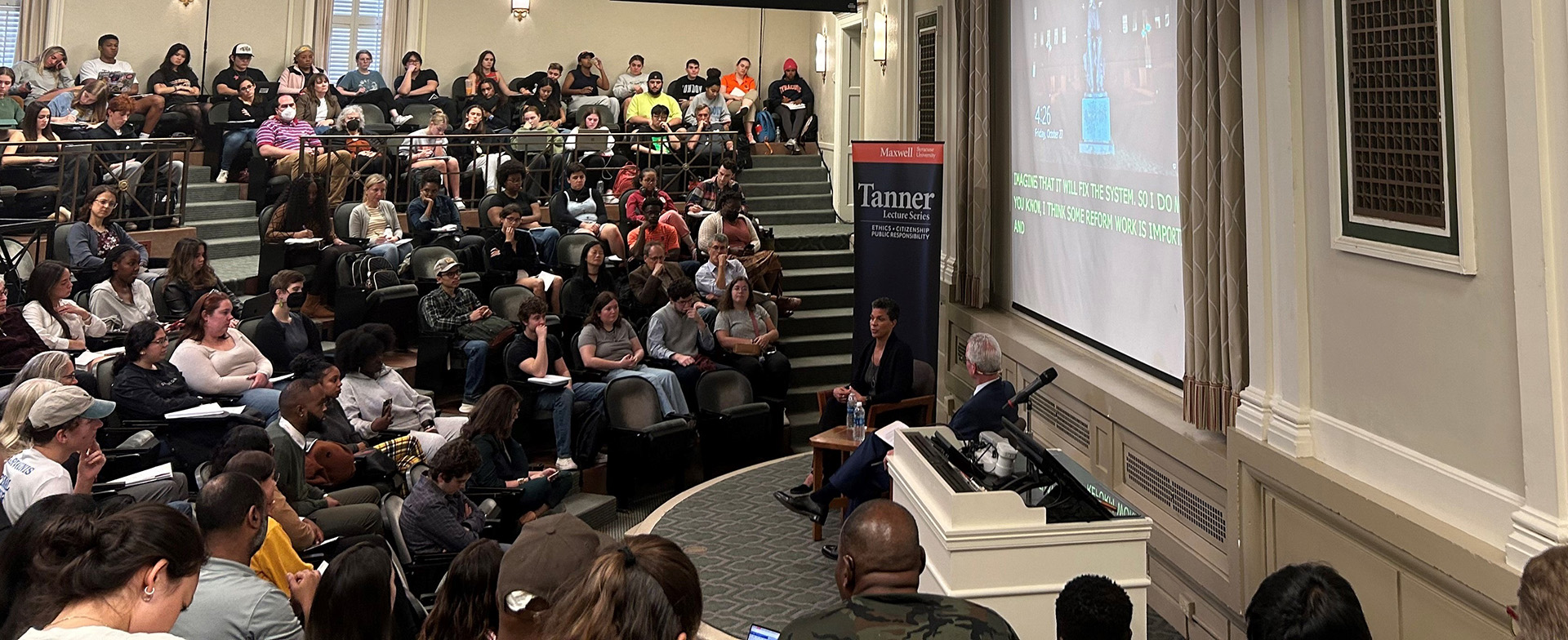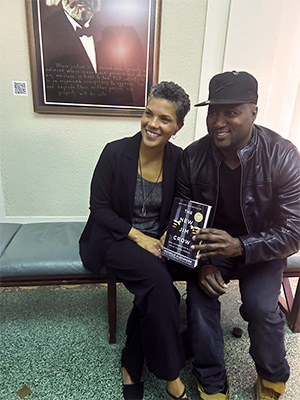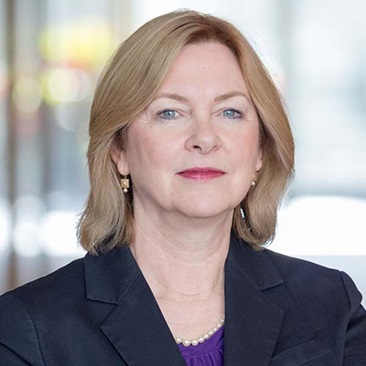
Tanner Lecture: Best-Selling Author Michelle Alexander Meets Those She Inspired
November 15, 2023
The author of ‘The New Jim Crow’ joined Maxwell’s Grant Reeher for a wide-ranging conversation on the impact of mass incarceration, the intersection of spirituality and justice, and the commitment to ideals in the face of adversity.
When Adia Santos ’23 B.A. (PSc) was 10 years old, their father brought home a copy of the book “The New Jim Crow: Mass Incarceration in the Age of Colorblindness,” and he challenged his daughter to read it with him.

It took the two of them six months to get through every sentence of the groundbreaking work on the impact of mass incarceration on communities of color. Since then, Santos has dedicated time, energy and passion to social justice issues while working toward a bachelor's degree at the Maxwell School and now as a graduate student at the S.I. Newhouse School of Communications.
On a recent evening, Santos got to meet and speak with the person who wrote that book, New York Times best-selling author Michelle Alexander.
Alexander visited the Maxwell School of Citizenship and Public Affairs on Oct. 27, as a guest of the Tanner Lecture Series. In front of a packed auditorium, she engaged in a 90-minute conversation with Campbell Public Affairs Institute Director Grant Reeher—and the audience—discussing her seminal work and its implications for incarceration and policing policies. She started by sharing how long it took for the book, originally published in 2010, to make its initial impact.
“When the book was released, it was met with mostly a deafening silence,” said Alexander. “There were two years where I was talking to small crowds of activists and community groups and in church basement and trying to sound the alarm. But, Barack Obama had just been elected as our nation's first Black president and our nation was sort of awash in this post-racialism.”
Watch the Full Event
In the book, Alexander explores cultural biases and how the segregation of the Jim Crow Era was replaced by mass incarceration as a means for oppressing communities of color. She said the book’s eventual success was due to a grassroots movement, led by people whose lives had been impacted by incarceration. As people began to connect other community challenges to the legacy of mass incarceration, an even wider audience was reached.
“A lot of activists who were working around educational inequity took up the book as a vehicle for helping to explain to people in the community why educational inequity could never be solved as long as kids’ parents and uncles and aunts were cycling in and out of the system,” said Alexander.
In the conversation, Reeher brought up a critique that has been aired by others within the wider racial justice movement about the emphasis on incarceration and the justice system.
Reeher asked, “One concern or criticism I've read coming from folks who I think are supportive of the ultimate goal is that the focus on those things though could take the attention away from things like economic opportunity, even though you’ve tracked a line in which they’re related, but take some focus away from economic opportunity, food security, affordable housing, those kinds of things that require investment.”
Alexander responded, “I don't know how you talk about any of those things without talking about mass incarceration in poor communities of color. Because if you want to talk about food insecurity then you have to talk about people who are released from prison and have nowhere to go have, have no money, have difficulty finding a job, find themselves in situations where they're often barred from public housing even.”
“Ms. Alexander has inspired me since I was a child, so having the opportunity to speak with and hear from her was unimaginably fulfilling.”
Adia Santos ’23 B.A. (PSc)
When time came for the audience to ask questions, almost all who took the microphone cited Alexander’s work as one of the inspirations for their own focus on social justice reform. Santos was among them.
“Ms. Alexander has inspired me since I was a child, so having the opportunity to speak with and hear from her was unimaginably fulfilling,” Santos said after the event. “I think of her as one of the thought leaders of the century, having laid the groundwork for those after her—such as myself—to continue working for racial justice and equity. Engaging with her at the lecture was an experience I will cherish for the rest of my life.”
During the question-and-answer period, students also discovered they share something else in common with Alexander: she is currently a student.
After growing frustrated and exhausted with the legal policy reform discussion, and having spent many years on the road, she left the legal profession and began teaching at Union Theological Seminary in New York City, with a focus on the intersection of spirituality and justice. Alexander said, “At some point I realized, I need to be a student. And so, I enrolled.”
When Alexander was asked by another student how she suggests young people overcome a sense of hopelessness in the face of limited progress on the issues they care about, she paused and noted what an important question that was.
“For me, meaning, purpose and joy in my life come from doing work and being involved in movements and creative projects for the liberation of all,” said Alexander. “I also know that people working creatively for liberation have again and again and again made the impossible possible and found ways to make a way out of no way, over and over again. Miracles happen. People make miracles, all the time, in ways that you can't predict.”
The final question of the night was not a question, but a thank you from a man named Michael Willacy in the audience, who was incarcerated when he first read “The New Jim Crow.” As the book suggested, he started a study group with other inmates. Today, he cites Alexander as one of the reasons he has found who he is again.
“I wanted to thank you for helping me, for telling our story, and for helping me reconnect with my humanity,” said Willacy. “You changed my life.”
The Tanner Lecture Series has been generously endowed by Dr. W. Lynn Tanner, founder, CEO, and chairman of TEC Canada, a leadership development organization dedicated to accelerating the growth and development of outstanding twenty-first century leaders. Dr. Tanner received a Ph.D. from the Maxwell School in 1975, where his studies focused on organizational change and development in the public and private sectors.
Related News
Commentary

Dec 23, 2024
Research

Dec 19, 2024
School News

Dec 19, 2024
